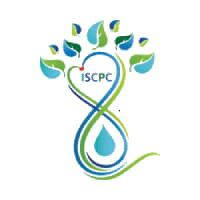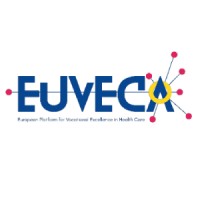On 23 and 24 November 2023, Cankarjev dom in Ljubljana hosted the 2nd International Scientific Conference at Primary Level ISCPC, organised by the Community Health Centre Ljubljana and the Faculty of Medicine of the University of Ljubljana. More than 140 participants from 16 different countries attended the lectures and workshops.
The ISCPC conference highlighted the right approaches to reduce the burden on healthcare and improve patient survival. A more efficient and patient-centred approach increases patient safety and long-term health, while achieving more cost-effective care. And the simulation centre makes healthcare staff even more competent, confident and efficient.
The main themes of the conference were:
- Integrated care at primary level
- quality and safety of interprofessional working at primary level
- sustainability and planetary health at primary level
- interprofessional education and training in healthcare through simulations and other new approaches
The second international scientific event of this kind in the field of primary health care in Slovenia was attended by local experts, including keynote speakers Professor Robin Miller from the UK, Dr Mieke Rijken from the Netherlands, Dr Andrée Rochfort MICGP from Ireland and Marit Vassbotten Olsen, MSc Nursing from Norway. The conference also featured three experiential workshops, including a workshop on the use of simulations for integrated care, led by David Halliwel. We presented on the use of virtual reality for complication prevention and education with high-fidelity simulations for better and safer primary care.
Prof. Robin Miller
Social care: the missing piece of the primary health care jigsaw?
The health of individuals and communities is not only based on the level and quality of primary health care services, but also on wider factors such as good nutrition, financial stability, physical activity, safe housing and access to education and employment. The role of social protection is to work with individuals and communities facing exclusion and inequality due to factors such as long-term disability and other social circumstances. Therefore, joint working between professionals and primary and social care services is essential if we are to improve the overall well-being of our population. In the past, such collaboration has been limited, with a negative impact on the quality of care. Professor Miller presented the challenges of such collaboration and the possibilities for improving it in the future.
Dr Mieke Rijken
Person-centred integrated care for people with multimorbidity: needs, models of care and outcomes
Due to longer life expectancy and the fact that most older people are living independently for longer, primary health care professionals are encountering more and more (older) people with multimorbidity. In some countries, the transfer of hospital care to primary care also plays an important role.
There is a growing awareness that (individual) chronic disease management programmes, e.g. for cardiovascular disease or COPD management, do not meet the comprehensive needs of these people and can lead to fragmented care. For this reason, person-centred models of integrated care are being tested and implemented in primary care in many countries. This is complex as it requires a different way of working, both with patients and with other health and social care providers. It requires different roles and expertise and different organisational and financial models. Prof. Mieke Rijken discussed the identification of multimorbid patient populations with high needs for person-centred integrated care and presented examples of primary care initiatives targeting such populations in European countries. She also discussed the current evidence on which such approaches are based.
Dr. Andree Rochfort
Patients, professionals, primary healthcare and planetary health
Dr. Rochfort introduced some of the concepts and terminology used in the field of planetary health. She explored family medicine and primary health care activities from a planetary health perspective. She presented practical examples of actions that can be taken in primary health care by professionals and patients, and described the shared benefits of caring for our planet while caring for patients.
Prof. Marit Vassbotten Olsen
Simulation Learning in Education
Prof. Marit Vassbotten Olsen presented various examples of the use of simulation as a pedagogical method in health worker education - patient observation, teamwork with patients or preparation using virtual reality programmes. Finally, participants reflected on why simulation is a useful and important teaching method and what it means for clinical practice, patient safety and, most importantly, for the patient.
The conference showed strategic orientations where we can focus further action in Slovenian primary healthcare for better and higher quality interventions. It also showed that, despite the fact that the field of family medicine does not have a legally funded tertiary research activity like other clinical disciplines, it still contributes to science. This is particularly important because this activity is encountered by the widest masses of patients who can benefit from it.









